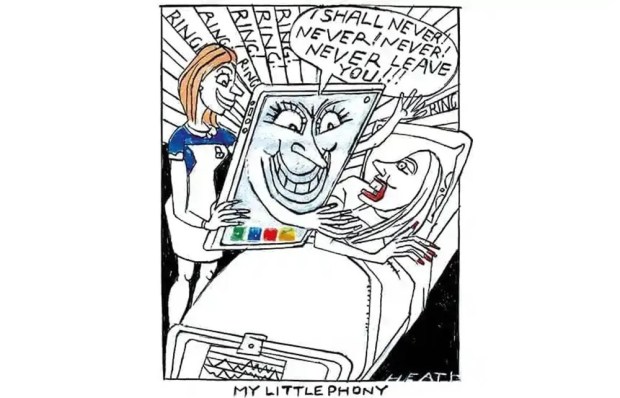I’m not actually a journalist, although I’m often described as such. Along with all the other critics, polemicists, and columnists, I should more accurately be described as a ‘commentator’, since my job is to sit around and opine.
Real journalists do exist, but they are a dying breed. When newspapers and magazines started to move online at the beginning of this century, it was discovered that the public weren’t very interested in journalism. Outlets realised that it was the commentary that actually attracted clicks, along with porn and funny cat videos, and so the commentators were rewarded while many of the journalists lost their jobs.
Over the last two decades, even big legacy outlets have ditched their investigative teams and foreign bureaus. In the UK, over 300 local newspaper titles closed between 2009 and 2019, while those that remain are struggling for resources. Alongside foreign news, domestic crime reporting has been worst hit. A House of Commons justice committee report from 2022 warned of a ‘well-documented decline’ in news coverage of the UK courts. In one snapshot study of Bristol Magistrates’ Court in 2018, students sat through 200 cases before they saw their first reporter.
‘Have you ever spent the day in a Magistrates’ Court?’ a (proper) journalist friend asked me recently. I had to confess that I had not, and it has also been many years since I set foot inside a Crown Court, once as a juror and a few times as a Rape Crisis worker. I’ve nevertheless had more exposure to the inner workings of the criminal justice system than the bulk of the public, most of whom will never see the inside of a police station, let alone a prison.
That’s as it should be. Like many social phenomena, crime seems to conform to the 80/20 rule: that is, 80 per cent of it is committed by only about 20 per cent of the population. Some studies estimate that the skew is even greater: one longitudinal study in Sweden found that just 1 per cent of the population (overwhelmingly young men) accounted for 63 per cent of violent crime convictions over a 31 year period; in England and Wales, 70 per cent of custodial sentences are handed out to offenders with at least seven previous convictions or cautions. Normal people don’t see the inside of the system because they do the right thing and obey the law.
But this fact, combined with too few court reporters, means that most people are ignorant about this branch of the state that we all vote and pay for. Thus two (rather vague) narratives have emerged over time. The first, an American import favoured by progressives, asserts that our prisons are full of a sad and sorry bunch of non-violent offenders who found themselves in the wrong place at the wrong time. The second narrative, favoured by most of the public, asserts that the system is soft, and that far too many dangerous offenders are permitted to wander the streets and victimise the public without being met with much in the way of either resistance or punishment.
As so often, the Great British public are correct in their intuitions, even if they are incorrect on the specifics. Progressive wonks like to make fun of the fact that voters consistently tell pollsters that crime levels have risen on the previous year, even when they haven’t. It’s hardly surprising that respondents are not well versed in the data on crime, given that most people are surprisingly innumerate. But looking at long term homicide rates shows that they have the general gist of the trend, for while rates may have fluctuated in recent decades, the baseline is now much higher than it was a century ago – roughly double what it was in Jack the Ripper’s day. Moreover, these homicide figures likely understate the true growth in serious violence, given that better medical care means that some victims now survive injuries that would once have been lethal.
The people who see the workings of the criminal justice system up close tend to agree with the public that crime levels are too high and punishment is too lax. ‘It’s incredible what you see there’ continued my (proper) journalist friend, having raised the issue of Magistrates’ Courts. ‘Some guy will come in having beheaded a grandmother, and as punishment we give him a flat and a job in Waitrose.’ He was joking, sort of. But you will often hear the same kind of dark humour from police, medics, and other professionals who see the system up close on a daily basis (‘a hot chocolate and a hand job’ is the typical sentence for most offenders, or so one policeman tells me).
Earlier this month, the Telegraph obtained data under Freedom of Information laws revealing the truth of these frontline reports. We can see from this data that offenders can rack up a stunning number of convictions before they ever see the inside of a prison cell: some have 50 theft convictions, 25 convictions for common assault, 20 for drug offences, and up to eight repeat convictions for carrying a knife. Over the last three years, 10,400 ‘super-prolific’ offenders, who had been convicted of more than 50 previous offences each, were spared jail. In other words, many criminals have to try really hard to end up in prison for anything at all.
In the national media you are likely to see detailed reports on only the outliers: the big sentences for big crimes, or sometimes the small sentences for big crimes. But these are just the cases that crest the surface.
The Parole Board’s persistent efforts to release Colin Pitchfork, for instance, the double child-murderer and rapist, have received some recent news coverage. Undeterred by the statistics showing that almost one in five murders are committed by someone on parole, the authorities seem determined to give 63-year-old Pitchfork the benefit of the doubt. The victims’ families don’t want him released, the tabloids don’t want him released, and polling suggests that the public don’t want him released either: almost 60 years on from its abolition, 55 per cent of UK respondents still tell YouGov that they would support the reintroduction of the death penalty for child murderers.
Occasionally these insights into the softness of the system will arrive at British breakfast tables in the form of grotesque examples like Pitchfork’s. Far more often, though, they don’t. For a fuller picture, the public must turn to the surviving rump of local news, where – if you can withstand the pop-up ads and clickbait – some truly extraordinary insights into our criminal justice system are intermittently brought to our attention.
Last month, for instance, (proper) journalists at Devon Live reported on a case involving a young female student at the University of Exeter who had been raped by restaurant worker Adam Mohammed after he followed her back to her halls of residence and lied to gain access to her room. The sentences that made my jaw drop were these, found in the middle of the report:
The 23-year-old is a refugee from Sudan who was granted final leave to remain in Britain last year by the Home Office despite the fact that he was already facing this rape charge…He already had one conviction for an offence of battery committed outside a nightclub in Exeter in January 2022 when he was granted settled status in June 2022.
Sorry, we granted him final leave to remain in the country after doing what? Unsurprisingly, the Home Office do not release press releases when they make decisions like these, since they presumably have an accurate sense of the public’s view on granting asylum to violent offenders. And this court case was not reported in any national outlets – I came across it only because I saw it shared on Twitter, and subsequently mentioned by columnist Ben Sixsmith in the Critic. But for the tireless work of Devon Live, none of us would ever have heard about it, and the public would remain in the dark about how our asylum system apparently works.
Or take another recent case, this one even more alarming. On May 15, British Transport Police (BTP) released a self-congratulatory press release about the conviction of 32-year-old Abdulrizak Ali Hersi for the sexual assault of a 13-year-old girl on the Piccadilly Line in London. Hersi was sentenced to 18 months in prison, but he will likely only spend nine months inside since, along with almost all other offenders, he will presumably be released from prison halfway through his sentence and spend the remainder on licence (this slipperiness about sentence length is one of several ways in which the public are deceived about the true nature of the criminal justice system they pay for).
For the past five years, the writer Ed West has been keeping a very long and very depressing Twitter thread detailing local news stories about criminals who have received light sentences for shockingly serious offences. I like to send this thread to people who don’t believe me when I tell them how bad things are. Smashing a beer bottle over a victim’s head and trying to stab him? Spared jail. Stamping on a victim’s head and putting him in a coma? Spared jail. Assaulting a police officer? Oh absolutely spared jail. One man by the name of Theodore Johnson has been imprisoned three times for killing his partners: he was released from prison after three years for the first one, and spent just a short stint in a psychiatric unit after killing the second, permitting him to meet and murder a third.
The public express a clear desire for a tougher justice system. YouGov polling from 2019, for instance, finds that 70 per cent think that sentences should be harsher, while only 3 per cent think the opposite. And yet, far from delivering on that promise, this government has moved in the opposite direction: overall police officer numbers fell by 14.3 per cent between 2010 and 2019, and around 50 per cent of Britain’s police stations with front counters are now no longer available to the public. Ministry of Justice funding was cut by 25 per cent during the same period, and half of magistrates’ courts, and over a third of county courts, were closed.
In a happy coincidence for the government, the loss of crime reporters over the same period has partially concealed the inevitable consequences of these decisions. Crime has effectively been decriminalised, and the public have not been consulted on the decision. Worse than that, the public don’t even realise that the decision has been made.
Got something to add? Join the discussion and comment below.
Get 10 issues for just $10
Subscribe to The Spectator Australia today for the next 10 magazine issues, plus full online access, for just $10.




















Comments
Don't miss out
Join the conversation with other Spectator Australia readers. Subscribe to leave a comment.
SUBSCRIBEAlready a subscriber? Log in